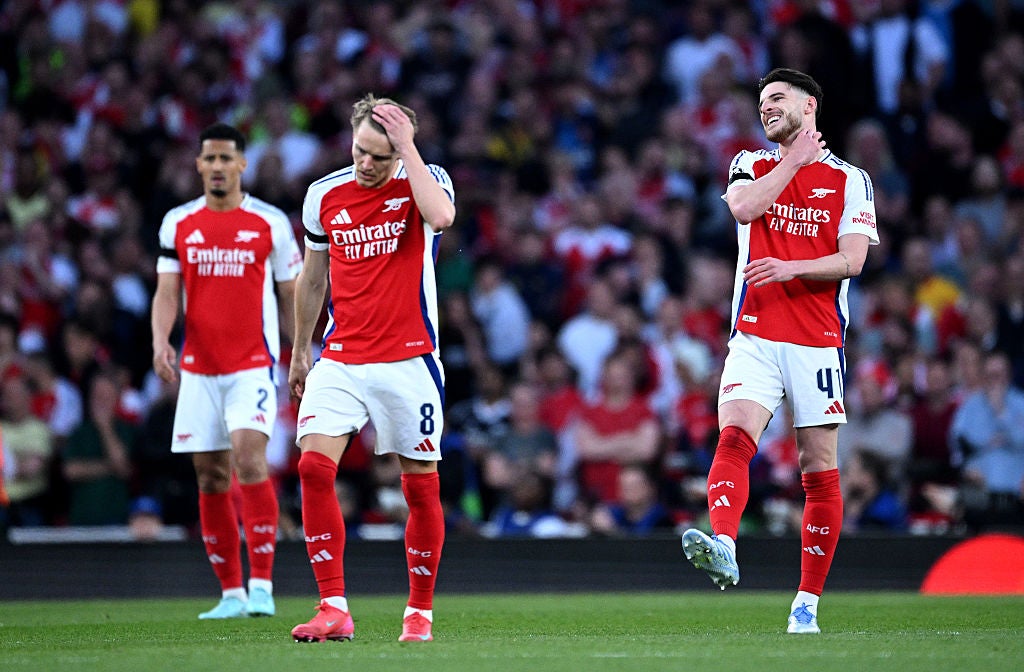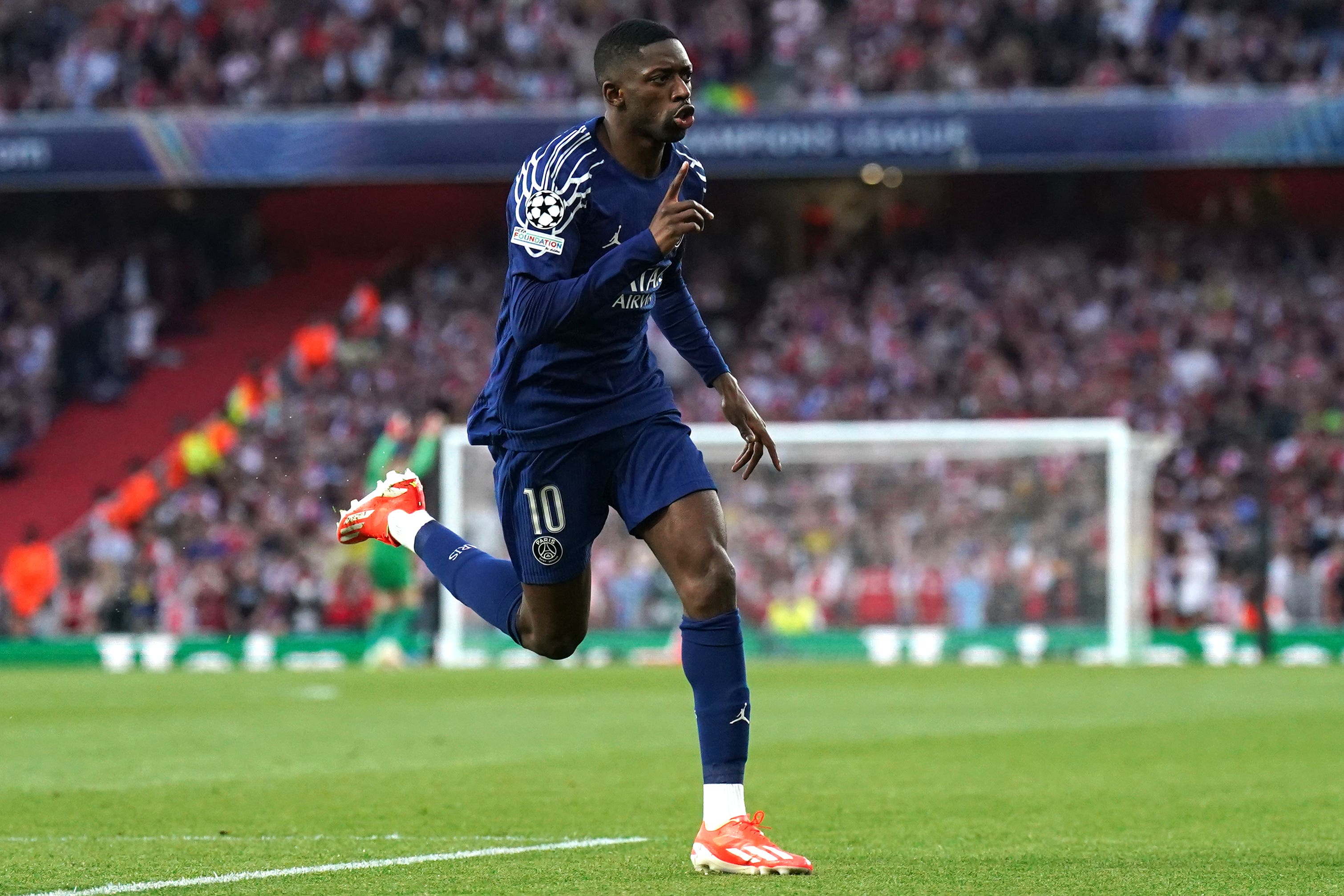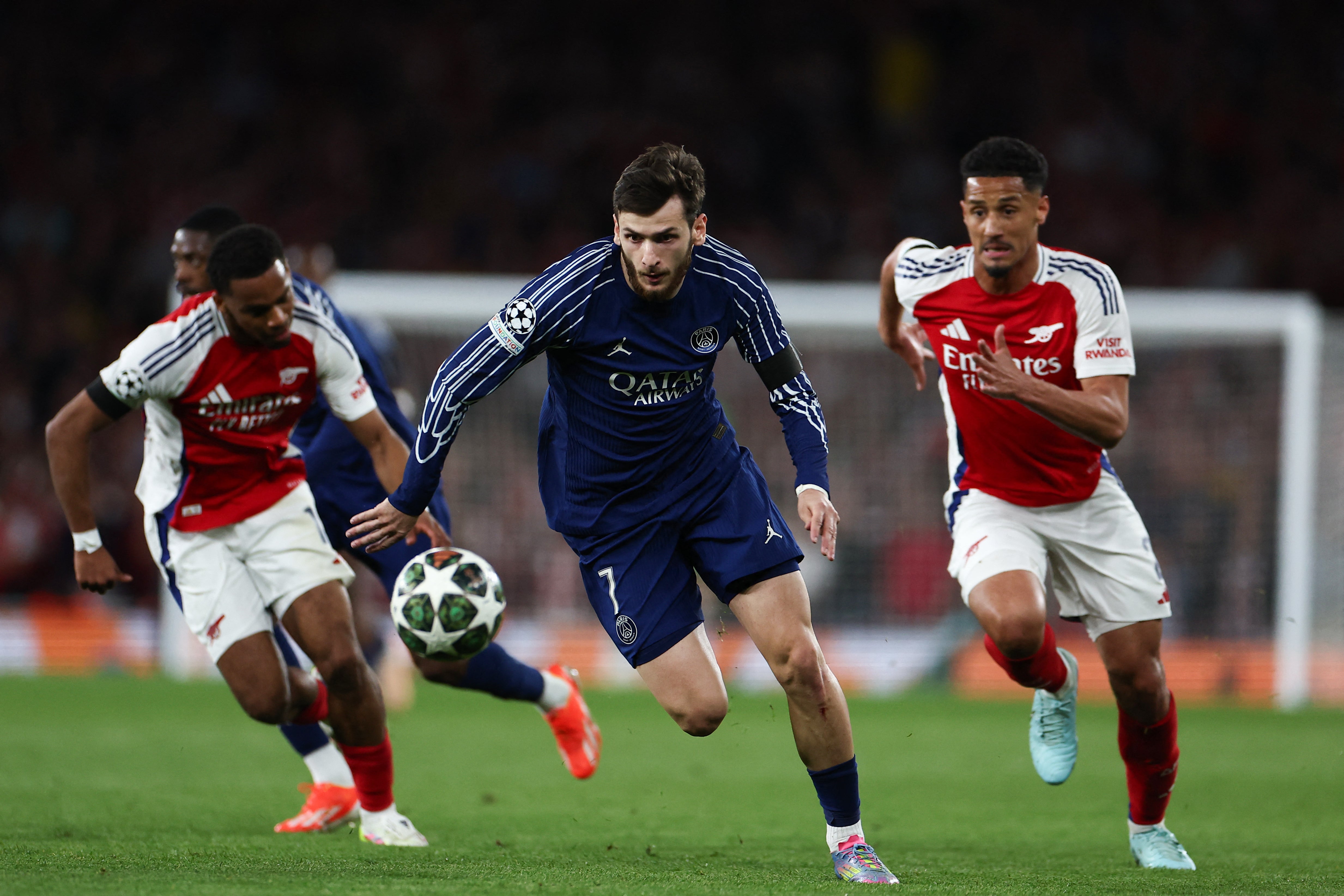
It is part of footballing orthodoxy. A tough away game demands a certain approach in the opening 20 minutes. Keep it tight. Keep everyone behind the ball. Keep it 0-0. Depress the home crowd with dullness and defensiveness. Don’t run forward. But Luis Enrique is not a subscriber to that school of thought.
Enrique sees the pragmatists and scorns them. He approaches football matches like a Formula One grand prix, as though whoever gets to the first bend in the lead wins, even if they need a pit stop and a couple of new tyres somewhere along the way. Paris Saint-Germain were the club who were known for the tragicomic end to their Champions League campaigns. In Enrique’s cultural revolution, they are notable for their scintillating starts.
Arsenal tried to intimidate PSG even if, with 16 years to come up with a slogan for a Champions League semi-final, they ought to have found something more rousing than “make it happen”. It was scarcely Churchillian. The Emirates nevertheless felt electrifying. And, after three-and-a-half minutes, Arsenal were 1-0 down.

It is the PSG way, shock and awe on a footballing field. They have scored more goals in the first 15 minutes of games against Premier League clubs in England this season than Manchester United have. They struck after 11 minutes at Villa Park, 12 at Anfield. They were quicker still at Arsenal.
A manager as meticulous as Mikel Arteta may not have been surprised by Ousmane Dembele’s winner. It had certain similarities to his strike at Anfield, déjà vu all over again. It if it was a failure of a rejigged midfield, it is also an illustration that knowing what PSG want to do is simpler than stopping them.
There are goals that sum up a footballing philosophy and symbolise the transformation of a player. This was one such. Enrique has dispensed with a specialist striker and put Dembele in the middle of his attack. He took a player with 29 goals in five seasons and helped him score 33 in one.
But not as a pure penalty-box poacher. Arsenal were beaten by a move Dembele started and completed, false nine and finisher in one, arriving at the edge of the box after initially finding space in a void in midfield. He has an elusiveness. Dembele was not found in the PSG forward line for their previous visit to Arsenal, either, but for rather different reasons. He was omitted by Enrique, a disciplinarian’s tough love looking still kinder with every goal that has come since then.
Yet when he struck, it highlighted how Arsenal missed the banned Thomas Partey. They were left to count the cost of his silly booking in the Bernabeu. It was a chastening moment for Declan Rice, the man charged with filling Partey’s boots, who was dragged out of position to follow Khvicha Kvaratskhelia. His heroics against Real Madrid had brought comparisons with altogether more glamorous midfielders. There were scarves being sold outside with the message “Bend It Like Declan”. In an instant, he needed to track back like Thomas.


But there was another contributor, the man who took Dembele’s pass and picked him out with a return ball. Khvicha Kvaratskhelia is an old-style dribbler operating at high speed, as though someone put a tape from the 1970s on fast forward. If every manager has a fetish, a type of footballer he collects, for Enrique, it may be wingers. For Arteta, it seems to be left-backs.
Enrique’s wingers are of less use when PSG get a taste of their own medicine. If a frailty in them is apparent, it is after the initial 20 minutes. If part of the key is to weather the storm, part of it lies in the counter-attack. Aston Villa were 2-0 down after half an hour, both goals scored by the visiting full-backs. They surged back with three goals of their own.
Arsenal could not stage a repeat, but there were similarities in the momentum shift; again in the final third of the first half. Arsenal, too, were at the most threatening in the first 15 minutes of the second, as if Enrique’s team talk has a galvanising impact before kick-off but a negligible one at the interval. PSG are not a team to exert total control: perhaps that is the trade-off from exhilarating attacking, energetic pressing and exciting youth.
They are characteristics a particularly distinguished visitor from France may recognise. He may have been a rare Frenchman at the Emirates who did not savour the scoreline. But then Arsene Wenger may be the greatest manager of his generation not to win the Champions League. Arteta is yet to assemble the achievements to merit that description, but this renders it less likely that he will conquer Europe this season. And if Arsenal are to progress, they will have to survive an early assault in Paris. It promises to be another ferocious first 20 minutes.







